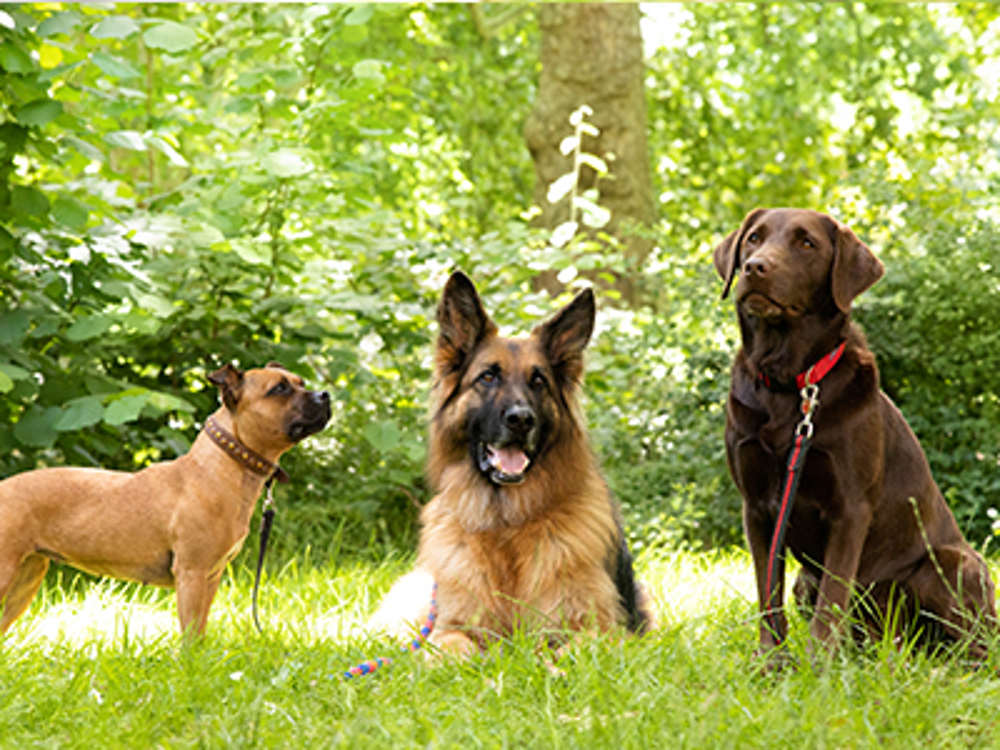
The word ‘socialise’ means something completely different to us humans than it does in relation to dogs. For us, it means meeting up with our mates perhaps at the local pub, but with dogs, it doesn’t mean meeting up at the local park for a run around together, as many owners wrongly believe. Socialisation means getting used to the world around them, whilst still listening to us, their owner.
Dogs evolved to be man’s best friend, not to be the best friend of another dog. We need them to be able to give us their attention, no matter what is going on around them, in order to keep them, and others safe.
Steps to socialising your dog
- Choosing a puppy can be a minefield. Check that your prospective breeder has done their homework in terms of ensuring that your puppy has a good temperament and is as healthy as possible
- Depending on where the dog was born and initially raised, there are many new things in the world that they will have to get used to
- The best sort of environment to get your new puppy from is one that mirrors your own. If your puppy comes from a house where they have been around all the normal day-to-day noises, such as washing machines and vacuum cleaners, then socialisation around those sorts of sounds has already been done for you. Imagine how much work you would have to do if they had been born in a barn with no contact with life outside
- A house will have a clear distinction between day and night, which will help your puppy to settle at night when they come to live with you
- If you live in a busy household, perhaps with children, then that also needs to be a consideration in terms of your choice of breeder
- Your breeder should also have taken your puppy outside, in a car and to the vet – so again, some of your work has been started, but it will need to be continued by you
- Puppies can be fearful of things they haven’t come across before, so it's important to approach new experiences sensitively. Keep things at a distance that your puppy can cope with and reward them. Be aware that puppies can become fearful again at around the onset of puberty, and this too needs to be handled sensitively. Never force your puppy to confront their fears – they will only learn to distrust you
- Protect your puppy from overbearing advances from people (and dogs) – step in, block their path, make sure they look and talk to you first, ask them to crouch down and allow your puppy to approach them it if it wants to. Keep encounters positive and short, and then ensure you get your puppy’s focus back on you – a game with a toy or some treats from you should do the trick. If treats are used, please remember to take them out of your dog’s daily food rations, and grade them according to your dog’s stage of learning, and/or the environment
- Beware of getting other people to feed or play with your puppy – you don’t want them running excitedly to everyone else in the park in the expectation of some fun, or food. If your puppy is nervous and doesn’t want to approach, don’t force them, and don’t try and make it happen by getting the other person to cajole with a treat. Make sure you reward your puppy yourself for staying around in the area he can cope with
- Teaching your puppy how to meet and greet other dogs is important. The excited advances of a puppy can cause an adult dog to tell them off. While many adult dogs are able to do this in a way that the puppy will understand and will come to no harm, many others can’t. Sometimes one bad lesson can be all it takes to turn your once exuberant puppy into a fearful or reactive puppy, in the presence of other dogs. Socialising puppies with other puppies and dogs needs knowledge, careful observation and appropriate intervention in order to get it right
Please note: there are many different ways to train your dog. This is just one method of teaching. If you are ever in doubt, please seek professional advice.
For more information and advice, you can find training classes with The Kennel Club Good Citizen Dog Training scheme, browse our full list of The Kennel Club Accredited Instructors or find a dog training club near you.
